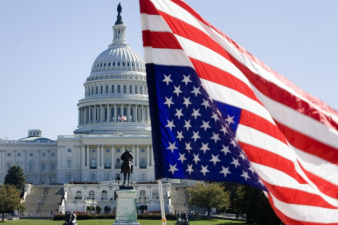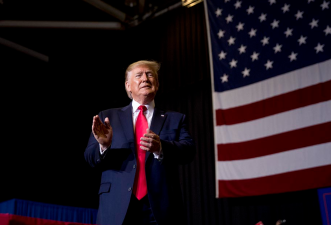Recently, concerns about a US recession and the Federal Reserve's shift in monetary policy have become one of the most significant events globally.
While the ultimate outcome is difficult to accurately predict, we can begin by understanding the fundamental global impact of the US economy and the Federal Reserve's monetary policy from a fundamental perspective.
Why is the world so focused on the US economy?
In today's global economic arena, changes in the US economy are like a boulder dropped into water, the ripples that quickly spread to every corner of the world. Their impact is far-reaching and widespread, drawing global attention. There are several core reasons for the global focus on the US stock market:

- The Dominance of Its Economic Scale and Status
China has long been the world's largest economy, boasting a vast domestic market and a highly developed industrial system. For example, the US consumer market is enormous, and businesses in many countries view the US as a key export market. US economic growth or recession directly impacts these countries' exports.
- The Central Role of the Financial System
The US dollar is the world's primary reserve currency and international trade settlement currency. The US boasts the world's most developed financial markets, and New York, as one of the world's financial centers, plays a key role in the flow and allocation of global capital.
- The Leading Role of Scientific and Technological Innovation
The US invests heavily in scientific and technological research and innovation, boasts numerous world-leading high-tech companies and research institutions, and holds a dominant position in key technology fields such as information technology, biotechnology, and aerospace. US scientific and technological innovation not only drives its own economic development but also provides technological support and momentum for global economic growth.
Thus, changes in the US economy have significant direct and indirect impacts on the global economy and countries around the world, necessitating attention.
- The Impact of Capital Flows
US interest rate cuts typically lead to a weaker US dollar, reducing the cost of dollar-based financing and prompting international capital to seek higher-yielding investment opportunities. This can lead to capital outflows from the US to other countries, impacting the stability and liquidity of global capital markets.

Why Do Federal Reserve Rate Cuts Catch Attention?
The Fed's decisions to raise or lower interest rates have a significant impact on global interest rates. When the Federal Reserve raises interest rates, other countries are often forced to follow suit to prevent capital outflows and currency devaluation. This raises borrowing costs for businesses and individuals, dampens investment and consumption, and thus weighs on global economic growth.
Regarding the money supply, for example, the Fed's quantitative easing policy increases the global money supply, leading to excess liquidity. While this can stimulate global economic growth to a certain extent, it can also trigger inflation and asset bubbles.
Thus, a shift in the Fed's monetary policy can trigger a potential shift in global liquidity, impacting countries worldwide in various ways, including capital and economics.
